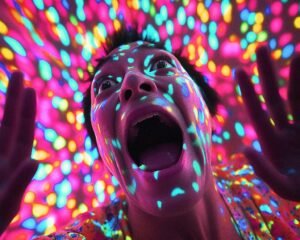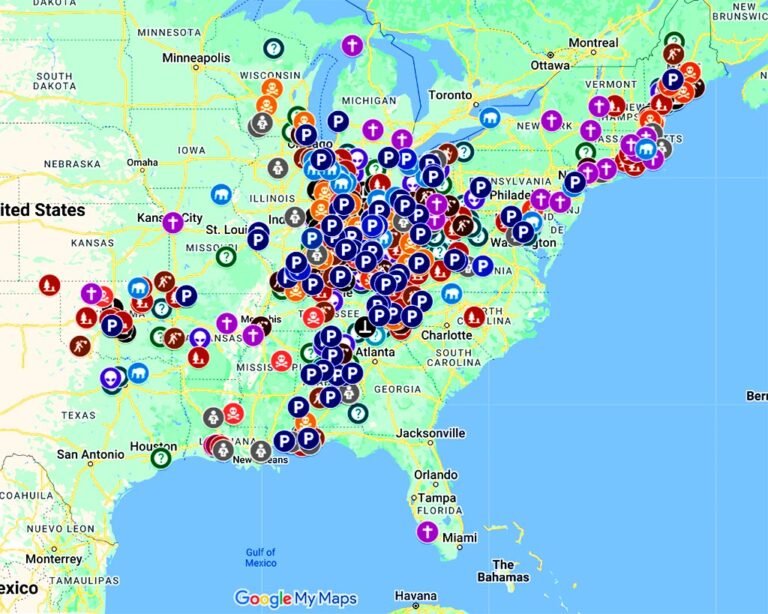What is a Psychotic Depression?
Psychotic depression, a severe form of depression paired with symptoms of psychosis, is a critical mental health issue that demands understanding and attention. Recognizing the types, causes, symptoms, and healing strategies associated with this condition is vital for mental health and overall well-being. Untreated psychotic depression can have a devastating impact on both emotional and physical health, making early detection and intervention essential. This article explores the various types of psychotic depression, how to identify it in oneself or others, and the available strategies for healing. While recovery is possible, it is important to remember that professional consultation is often necessary, and the information provided here is intended to supplement such support, encouraging individuals to take action when needed.
Common Types of Psychotic Depression
Psychotic depression manifests in several forms, each presenting unique characteristics. Understanding these differences is crucial for tailoring appropriate healing strategies and ensuring effective treatment. Here are some common types:
- Major Depressive Disorder with Psychotic Features
What It Is: This is the most common form of psychotic depression, characterized by major depressive episodes coupled with hallucinations or delusions.
Causes: Genetic predisposition, trauma, or prolonged stress are common triggers.
Symptoms: Intense sadness, delusions of guilt or worthlessness, and visual or auditory hallucinations. - Bipolar Disorder with Psychotic Depression
What It Is: Bipolar disorder can include episodes of depression with psychotic features during the depressive phase.
Causes: Genetic factors, irregular brain chemistry, or life stressors.
Symptoms: Severe mood swings, psychosis during depressive states, including paranoia or false beliefs. - Postpartum Psychotic Depression
What It Is: This type affects women shortly after childbirth, involving severe depression combined with psychotic symptoms.
Causes: Hormonal changes, pre-existing mental health issues, and a history of mental illness.
Symptoms: Obsessive thoughts, hallucinations related to the baby, and extreme emotional instability. - Schizoaffective Disorder with Depressive Features
What It Is: A condition combining symptoms of schizophrenia (psychosis) with depression.
Causes: Imbalance in neurotransmitters, traumatic experiences, or genetic predisposition.
Symptoms: Delusions, hallucinations, and persistent depressive mood. - Psychotic Depression in Older Adults
What It Is: Depression with psychotic symptoms that predominantly affects the elderly.
Causes: Neurodegenerative diseases, loss of independence, or chronic illness.
Symptoms: Delusions, memory problems, and persistent feelings of helplessness. - Treatment-Resistant Psychotic Depression
What It Is: A form of depression that does not respond to typical treatments and includes psychosis.
Causes: Complex interplay of brain chemistry and life stressors, often involving a history of multiple failed treatments.
Symptoms: Ongoing psychosis despite treatment efforts, severe depressive symptoms, and lack of response to medications.
Understanding these types helps in identifying the best strategies for managing and treating psychotic depression, providing hope for recovery with appropriate interventions.
Identifying Psychotic Depression in Yourself and Others
Early identification of psychotic depression is key to minimizing harm and supporting a faster recovery. Recognizing the signs in yourself or others can make a significant difference. Here are common signs to look for:
- Physical Signs:
- Persistent fatigue
- Noticeable changes in weight or appetite
- Sleep disturbances such as insomnia or excessive sleeping
- Emotional Signs:
- Intense sadness or hopelessness
- Extreme guilt or shame, often unfounded
- Frequent anxiety or feelings of dread
- Behavioral Signs:
- Social withdrawal or avoiding usual activities
- Reduced interest in personal hygiene or self-care
- Increased irritability or outbursts of anger
- Interpersonal Signs:
- Strained relationships with family or friends
- Deterioration in work or school performance
- Difficulties communicating or expressing emotions
Self-Identification:
Reflect on whether you often feel detached from reality, experience overwhelming sadness, or have unshakable thoughts of guilt. Ask yourself if you’ve noticed any of the above signs more frequently in your daily life.
Identifying in Others:
Pay attention to loved ones who exhibit significant behavioral changes, such as avoiding social interactions, neglecting responsibilities, or expressing irrational thoughts or fears. Approach the subject with sensitivity and encourage open dialogue, offering your support.
Psychological Harms and Emotional Consequences of Untreated Psychotic Depression
When psychotic depression is left untreated, the consequences can be severe, exacerbating both mental and physical health challenges. The following are some key harms associated with untreated psychotic depression:
- Chronic Stress and Anxiety:
Persistent depression and psychosis create a cycle of stress and anxiety that affects daily life. - Cognitive Impairment:
Untreated depression can interfere with memory, focus, and decision-making abilities. - Social Isolation:
Individuals may withdraw from loved ones and become increasingly isolated, further worsening symptoms. - Substance Abuse:
Some individuals may turn to drugs or alcohol as a means of coping, leading to addiction. - Suicidal Thoughts:
The combination of psychotic and depressive symptoms can heighten the risk of suicidal ideation and attempts. - Physical Health Deterioration:
Unmanaged depression often contributes to physical ailments, including fatigue, chronic pain, or even heart disease.
Addressing psychotic depression early helps prevent these severe outcomes and encourages a healthier, more stable life.
The Road to Recovery
Healing from psychotic depression is possible through a combination of self-care, structured interventions, and professional assistance. Below are some strategies for healing:
- Recognize the Signs and Reach Out
Why It Helps: Early recognition allows for timely support and treatment.
How to Do It: Take note of recurring symptoms and talk to a trusted friend, family member, or mental health professional. - Engage in Regular Physical Activity
Why It Helps: Exercise helps boost endorphins, improving mood and energy.
How to Do It: Start with manageable activities like walking or light yoga and increase intensity as you feel more capable. - Practice Mindfulness and Meditation
Why It Helps: These techniques can help calm the mind and reduce anxiety.
How to Do It: Dedicate a few minutes daily to meditation or mindful breathing exercises to center your thoughts. - Seek Therapy
Why It Helps: Cognitive behavioral therapy (CBT) and other therapies are effective in treating psychotic depression.
How to Do It: Consult a therapist specializing in depression and psychosis for regular sessions to work through thoughts and behaviors. - Consider Medication
Why It Helps: Antidepressants or antipsychotic medications can alleviate symptoms.
How to Do It: Discuss medication options with a psychiatrist, who can prescribe the right treatment plan based on your needs.
What Next?
Understanding the various types of psychotic depression, recognizing the signs in oneself and others, and knowing the consequences of leaving it untreated are crucial steps toward recovery. Although psychotic depression can lead to significant harm if ignored, healing is possible with the right combination of self-care strategies and professional support. Early intervention can improve both emotional and physical well-being, allowing individuals to reclaim their lives. Always remember that professional help is available, and seeking it early can lead to lasting recovery and a brighter future.





















+ There are no comments
Add yours